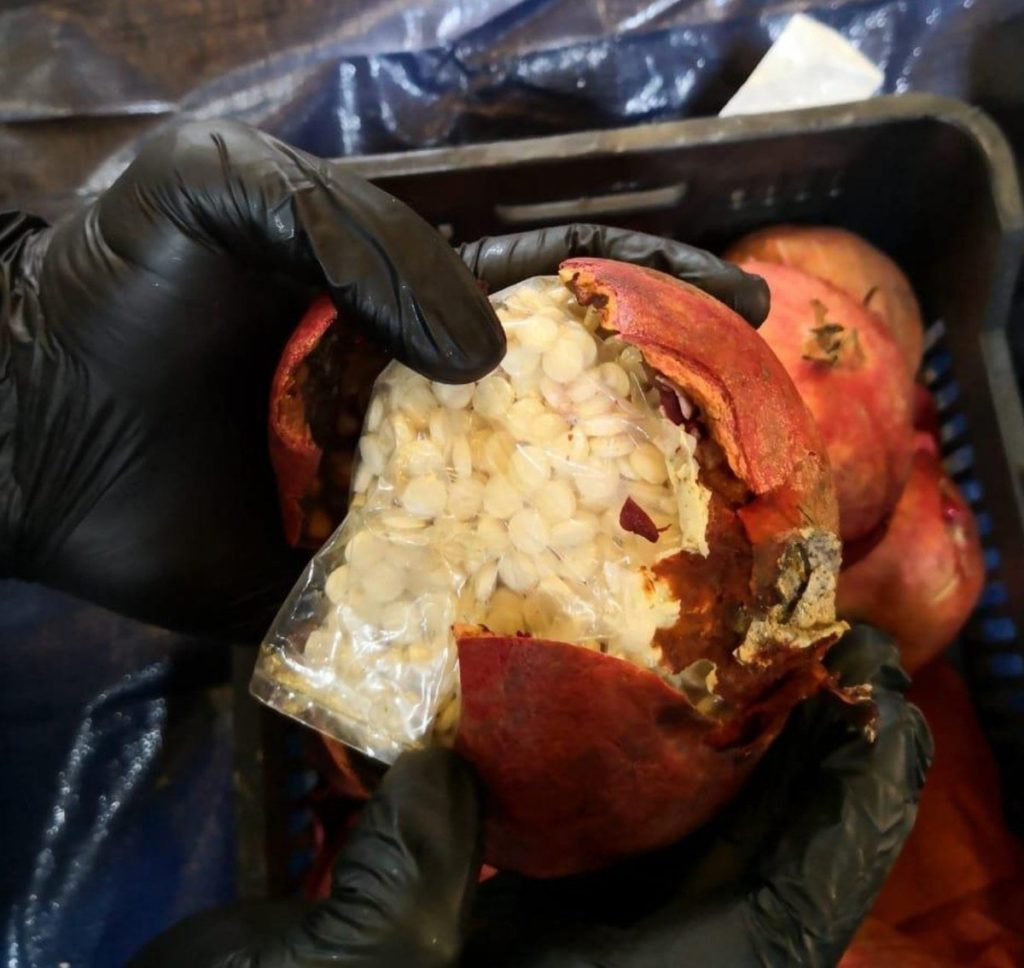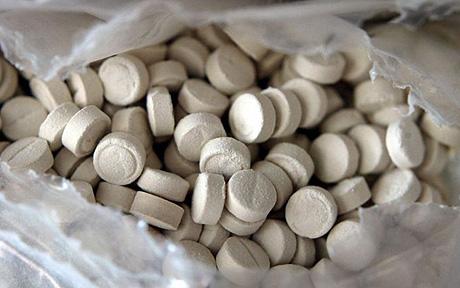Lebanon’s General Directorate of Internal Security Forces – Public Relations Division announced that “in the context of the continuous follow-up carried out by the Internal Security Forces to pursue and arrest those involved in drug smuggling operations, and within the framework of the plan developed by the Judicial Police, which aims to combat the scourge of drugs throughout Lebanese territory, information was made available to the Central Anti-Narcotics Bureau about a network preparing to smuggle narcotics inside food boxes to Dubai, via Rafic Hariri International Airport – Beirut.”
It indicated in a statement that “as a result of intensive investigations and inquiries, the aforementioned bureau was able to determine the location of the the package in the Airport Road area. In a qualitative and complex operation, each of the following was arrested: A. N. D. (born in 1990, Lebanese nationality) and M. H. (born in 1988, Lebanese nationality).”
The Directorate revealed that “a quantity of the aforementioned boxes were seized in their possession, containing 3 kg of Captagon pills, or about 16,000 pills, hidden in a professional manner,” noting that “the legal requirements were implemented against the two detainees, and work is underway to arrest the rest of those involved, under the supervision of the competent judiciary.”
Since 2011, the Gulf region has seen a significant escalation in the scale and sophistication of drug trafficking. There has been a particular increase in the supply of Captagon, a codrug of amphetamine and theophylline, whose consumption threatens social peace. However, the issue extends beyond organized crime to affect politics. The Syrian regime of President Bashar al-Assad and its allies have leveraged Captagon trafficking as a means of exerting pressure on the Gulf states, notably Saudi Arabia, to reintegrate Syria into the Arab world and secure concessions that would allow the regime to reinforce its position after thirteen years of conflict.
However, even this may not be enough to curb Captagon supplies, as production of the drug is intertwined with the interests of powerful interest groups in Syria, including senior members of the leadership. To secure the Assad regime’s cooperation, Saudi concessions would need to be substantial, addressing the regime’s critical need for financial resources, reconstruction aid, and political support against Western demands for regime change. And even then, the external obstacles to an agreement would have to be removed, which is unlikely in the near future. Without a comprehensive package that addresses the various dimensions of the Captagon trade, as well as the broader crisis in Syria, little progress can be expected in resolving this issue.
On April 23, 2022, a man from Qatif in the Eastern Province of Saudi Arabia poured gasoline in his house and set fire to it, killing four members of his family. The offender, who was in his twenties, carried out the crime while under the influence of Captagon.
The Assad regime relies on a sophisticated network of allies for the production and distribution of Captagon. According to COAR, this includes key military and security units, such as the elite Fourth Armored Division of the Syrian army, commanded by Bashar al-Assad’s brother Maher, Air Force Intelligence, and the Republican Guard. It also involves local militias, including the National Defense Forces, the Baath Brigades, and Saraya al-Areen, a Latakia-based militia, as well as foreign armed groups of various affiliations, such as Iran’s Islamic Revolutionary Guard Corps and Hezbollah.

The extent and depth of this network were evident after the United States and the United Kingdom imposed sanctions on Syrian individuals involved in the Captagon trade in March 2023, including the freezing of their assets and travel bans. The sanctions list included Samer Kamal al-Assad; Abdullatif Hamid, a prominent businessperson who uses his factories for packaging Captagon pills and has ties to the 2020 Captagon seizure in Salerno; Imad Abu Zureiq and Mustafa al-Masalmeh, both of them militia leaders in southern Syria; Taher al-Kayali, a business magnate linked to the Captagon industry; Amer Khiti, a Syrian politician who oversees businesses that facilitate the production and smuggling of Captagon; Hassan Mohammed Daqqou, dubbed the “king” or “emperor” of Captagon, who has connections with Hezbollah. It also included Mohammed Shalish, who is involved in shipping; Raji Falhout, a militia leader in Suwayda who uses his headquarters for Captagon production; Wasim Badiaa al-Assad, another cousin of the president, who assists in Captagon manufacturing and trafficking; and Nuh Zaiter, a prominent Lebanese narcotics trafficker associated with the Assad regime and Hezbollah.


Leave a Reply
You must be logged in to post a comment.